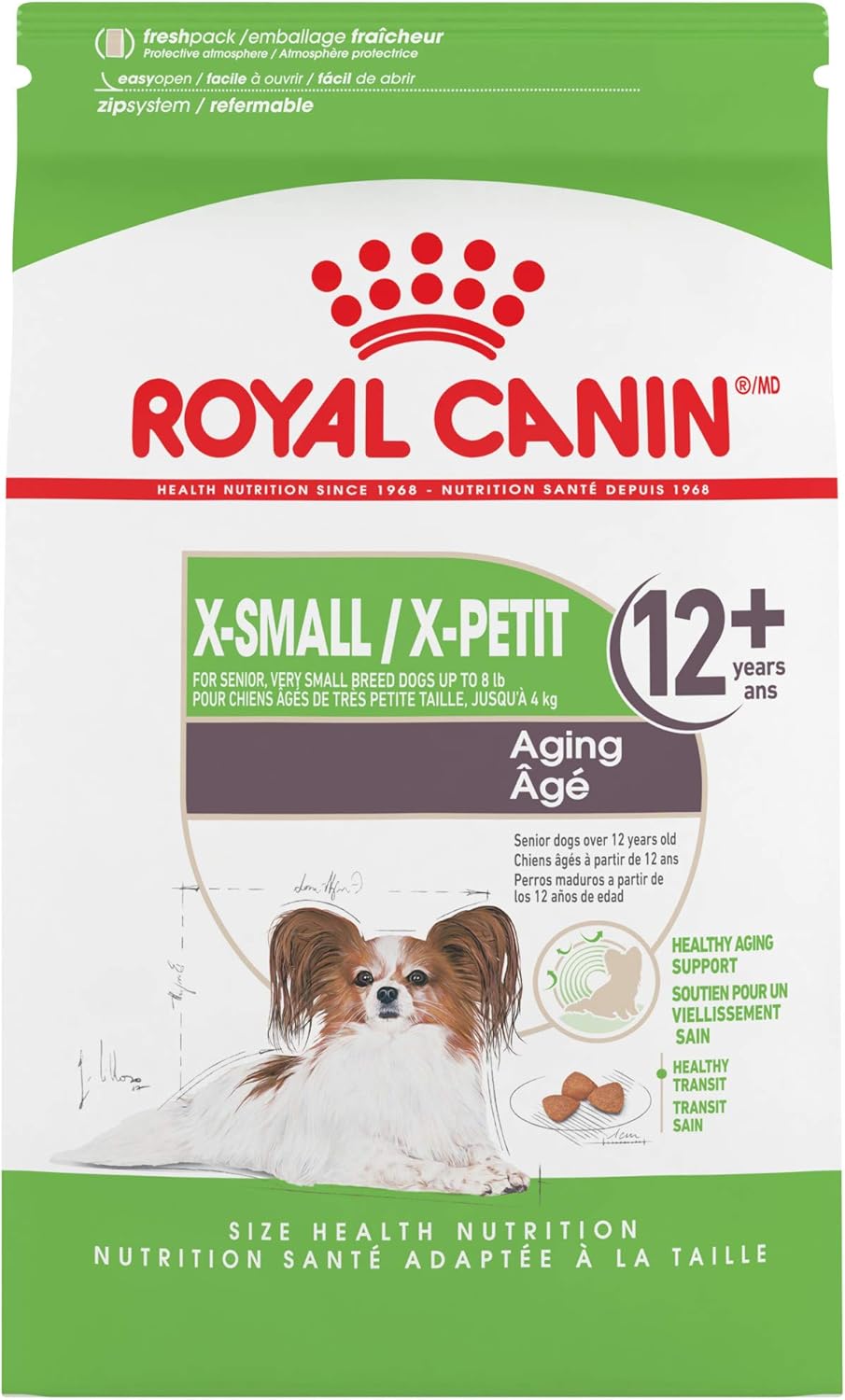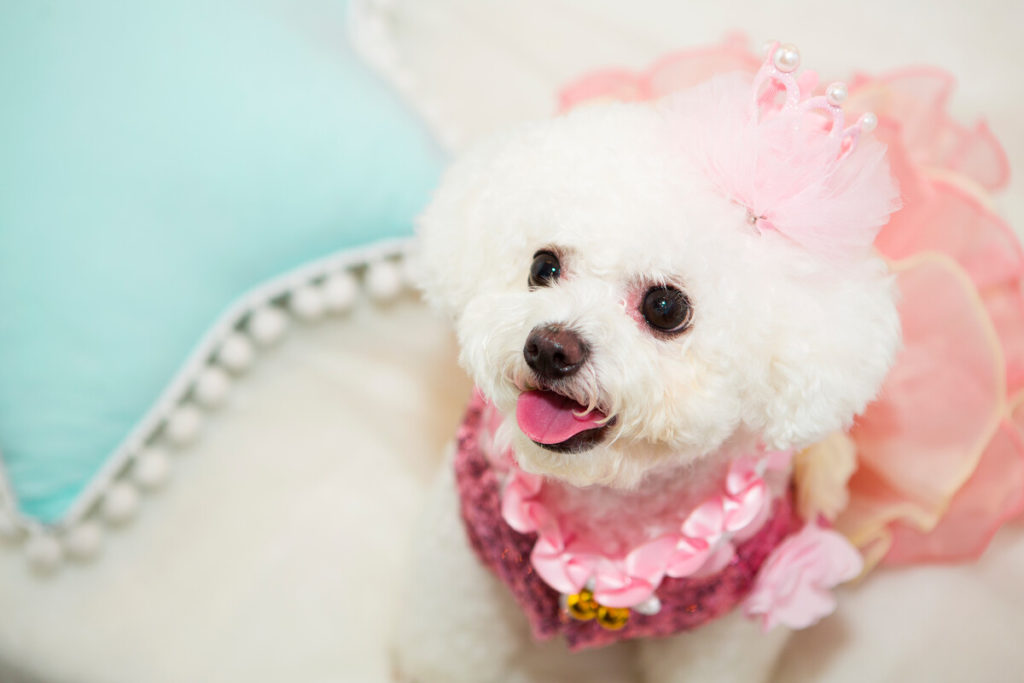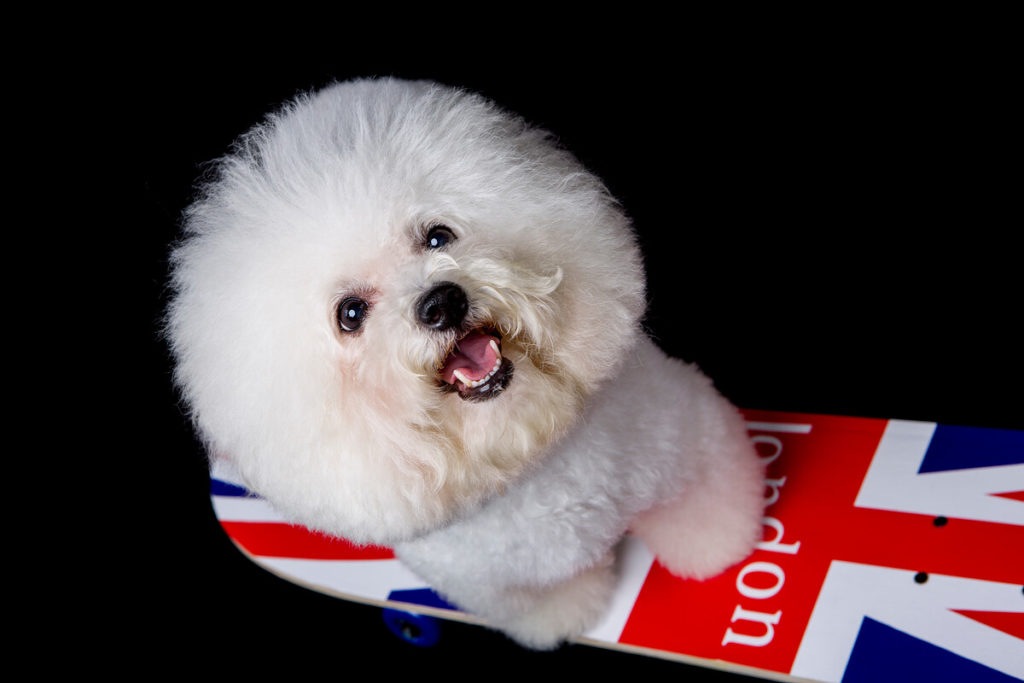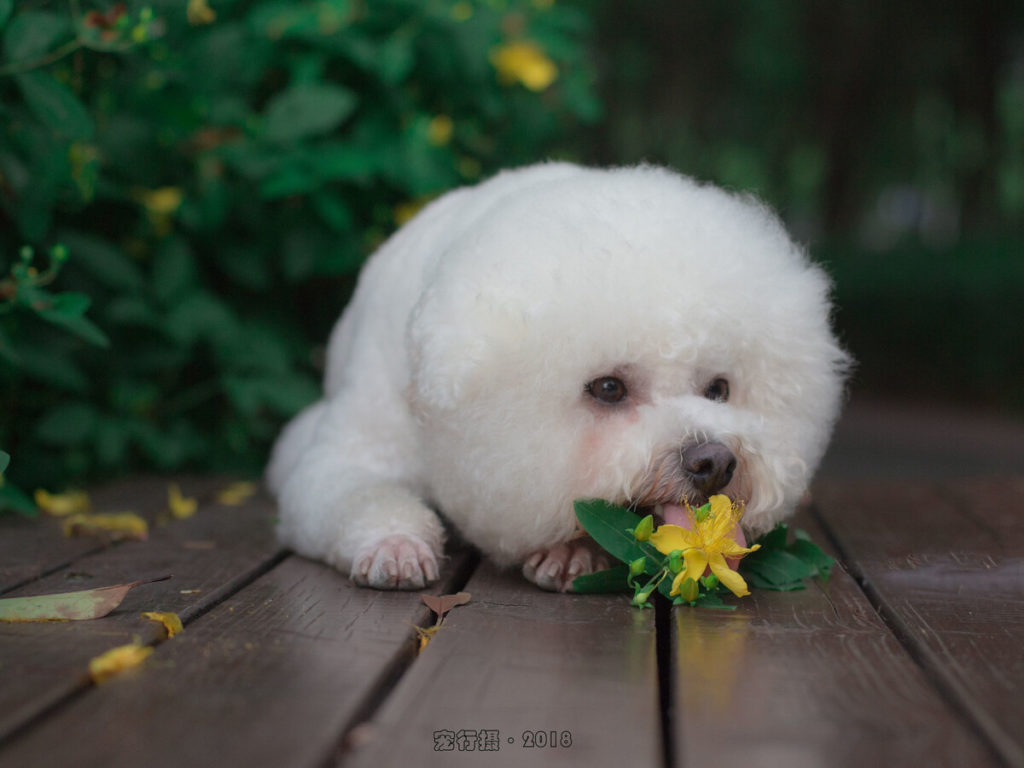What is the best Bichon Frise food and what can Bichon Frises eat? How much and how often to feed your Bichon Frise are vital questions all Bichon dog owners ask. Read on to find details of the best dog food for Bichon Frises.
What’s the Best Dog Food for Bichon Frises?

The best food for a Bichon Frise is an extremely controversial topic among owners because everyone has their own ideas. After many decades of my own ” hands on” research, I offer my expert opinion on correct Bichon Frise feeding.
There’s a wealth of advice relating to the best food for Bichon Frise puppy. The main difference between bad, good and the best Bichon Frise puppy food is the quantity of fillers. The digestive tract of your puppy processes lots of protein, not carbs and definitely not fillers.
Before the 1930s, dogs were generally fed garden vegetables and meat. However, in the 1930s, other dog foods were introduced into the canine marketplace.
Such food included kibble and various canned options created from USDA-rejected grained and cereals. These new foods were regarded as handy choices for dog foods for Bichon Frises and other dogs.
Bichon Frise Feeding Chart
Growing puppies need more food than adults but each one will vary:
Quantities can be adjusted but here are Bichon Frise feeding guidelines to help you.
- 1 pound puppy needs approx. ½ cup of food.
- 3 pound dog needs about 1 cup of food.
- 5 pound Bichon Frise dog requires about 1.25 cups of food.
- 6 pound Bichon Frise dog needs 2 cups of food.
The amount increases during growth spurts and drops when he’s a fully grown adult. He needs 3-4 meals per day until he’s 6 months old. A puppy has a tiny tummy so each meal should be small. Every dog is unique in size, activity level and metabolism.
Use your brains when feeding your Bichon. If your puppy stops eating after 5 minutes to 15 minutes, he’s full. On the other hand if he eats it all within 10 mins and wants more, give him another 1/4 cup. (If he’s losing weight and has no appetite, he’s probably sick.)
After 6 months of age, drop him from 4 to 3 meals or 3 to 2 meals per day. When he’s 1 year old, he’s an adult and you need to start changing his food to that of an adult over the next 6 months.
As an adult Bichon Frise, he may have 1 or 2 meals per day, depending on how much he’s able to eat in one go. If it’s 2 meals, it’s half the food at each meal, not double the food. His tummy is sensitive so slowly make the increases in food volume. You can give your Bichon a snack at any age.
Dog chews and treats should be only given as rewards. Then it will be easier to train him. If you do it all the time, it won’t mean anything.
Portion Control is Essential for Bichon Frises
Some dogs will eat everything you give them so you need to control how much they eat. The amount you give your Bichon will depend on his age and level of activity. Only leave his food out for 15-30 minutes. If it’s not gone by then, put it away.
How Many Times A Day Should I Feed My Bichon Frise?
I feed adult Bichon Frises twice daily. Bichon Frise puppies are fed 3 times daily with a quality wet puppy food. Dry puppy food is made available to Bichon Frise pups under 6 months of age at all time, together with clean fresh water owing to the dangers of Bichon Frise puppy hypoglycaemia.
What Can Bichon Frises Eat?

What do Bichon Frises eat? You should decide what foods you’ll feed your Bichon and wean him off the foods the breeder fed him and onto the foods you intend to give him in the long term. Your breeder probably provided a Bichon Frise food list. Because Bichon puppies are so small, you must make slow changes for the sake of his health.
Follow this Bichon Frise Food plan to gradually get your Bichon puppy onto your food diet.
- Week 1: Replace ¼ of his “normal” food with your choices.
- Week 2: Replace 1/3 of his “normal” food with your choices.
- Week 3: Replace half of his “normal” food with your choices.
- Week 4: Replace ¾ of his “normal” food with your choices.
- Week 5: You’re now feeding your puppy only the foods you intend to give him.
What You should Feed your Bichon Frise?
Most dog food brands have fillers which are ingredients designed to “bulk up” the dog but have no nutrients. One cup of food is usually half to ¾ of proper food and the rest is cheap filler/garbage that just fills the dog’s bowl and tummy.
- Fillers pass through the dog (without being absorbed) and come out the other end. This can cause nutritional deficiencies and issues with bad behaviour such as eating faeces or grass.
- The Bichon Frise is fragile and small which means his digestive system is also sensitive and small
- Home cooking is the ideal solution for your Bichon because then you’ll know there are no fillers and you can give him the best nutrition. Click to go to the Bichon Frise food recipes.
If you either can’t or don’t want to cook for your Bichon for whatever reason, there are many commercial dog food options. If you buy cheap food, it will be low quality. Big pet stores stock dog products but most don’t have premium, nutritious dog food.
Best Dry Food for Bichon Frises
Best Bichon Frise Puppy Food:Royal Canin Small Puppy Dry Dog Food

Bichon Frise under 12 months of age must be fed a special puppy diet to ensure correct growth.
Royal Canin small puppy dry dog food (formerly Mini Puppy) is tailor-made for puppies up to 10 months old with an expected adult weight of 9-22 pound.Meets the high energy needs of small puppies during their short, intense growth period.Exclusive small kibble size designed for puppies with small jaws and picky appetites.Supports developing immune systems with an exclusive blend of antioxidants and vitamins.Promotes healthy digestion through highly digestible proteins and prebiotics.
Royal Canin Small Indoor Adult Dry Dog Food

This is dog food for small breeds from 12 months to 8 years of age, weighing 9 – 22 pounds. This food has been calculated precisely so the dogs will get all the essential nutrients needed by dogs in this grouping. This special kibble encourages the dog to chew it thoroughly so it’s properly digested.
The Royal Canin food options provide the right balance of DHA and EPA to keep the dogs’ coats and skin healthy. It uses easy-to-digest proteins that support digestive health while reducing the smell and amount of stools
Because the dogs spend most of their time inside the home, involved in low-intensity activities, there’s no need for food that will provide them with too much energy. Foods are designed not to overload the dog with unnecessary calories; instead, they get enough just to keep their weight stable.
Hill’s Science Diet Adult Dog Food

This food targets small dogs between 1 – 8 years old with a precise balance of essential nutrients. The quality and luster of their coats and skin are managed by vitamin E, a unique mix of omega-6 fatty acids and numerous other nutrients.
The food also has a proven blend of antioxidants and vitamins E and C to give the dogs a healthy, strong immune system. This is prime quality food containing real chicken to maintain the dog’s perfect weight and ensure he has lean, strong muscles.
This delicious dog food is easy to digest and doesn’t have any preservatives, artificial flavors or colors. This food is not suitable for puppies, nursing or pregnant dogs. Seek advice from your vet or the manufacturer if you’re not sure.
Dog Food For Senior Bichon Frises
Dogs older than 7 or 8 need a diet slightly lower in protein. Nutrients need to be absorbed properly. If your Bichon is eating the best possible home cooked food, he may not be absorbing the vitamins, minerals and protein.
A small amount of normal enzymes can make most of these essential nutrients go right through the dog’s body without being absorbed. If your Bichon isn’t gaining weight or has stomach problems, a prozyme enzyme can help ease this issue.
A Good Food Choice for Senior Bichon Frises is the Following :Royal Canin Mini Aging

This is dog food targeted at dogs that are 12+ years old. It has been made for smaller senior breeds and helps keep them healthy. There are plenty of antioxidants in this formula that also promotes healthy kidneys.
The formula for this product is designed to be a complete diet that provides your older dog with everything necessary for him to be healthy and happy.
The food has a number of unique flavors and can be rehydrated so your Bichon can eat it even easier. The phosphorus content keeps his kidneys healthy and the chelation parts of the calcium decrease the amount of tartar that accumulates on his teeth.
Grain-free Dog Food Versus Grains
The statistics regarding the number of dogs affected by grains in their diet are usually very different to the reality. However, there are dogs with allergies or sensitivities to all grains, or at least some of them.
Symptoms can include: skin irritations, itching and breathing difficulties. Digestive and stomach issues such as bloating, flatulence and gas may also occur. Rye and wheat contain large amounts of gluten and have been linked to many different problems.
In recent years, another serious problem has reared its ugly head. This one is about dog breeds that previously weren’t prone to dilated cardiomyopathy (DCM), a serious heart disease, but now are suddenly being diagnosed with this major problem. The discovery was eventually made that these dogs were being fed a grain-free diet.
A report appeared in the Journal of the American Veterinary Medical Association in December 2018, written by Dr. Lisa Freeman and several of her expert colleagues. This report identified the link between dilated cardiomyopathy in dogs and dog food that’s free from grains.
However, it went even further and identified a particular diet (BEG). This covers certain boutique brands with exotic meats (such as kangaroo, ostrich and alligator), foods such as potatoes, lentils, legumes and/or peas as among the top five ingredients.
At that time, the FDA were still carrying out more studies into this matter and there weren’t any recalls of dog foods connected to this issue.
The FDA was finally at the point of issuing an alert on June 27th, 2019. There were 16 brands of dog food that were grain-free. They were the main foods dogs were eating when they started succumbing to dilated cardiomyopathy. These brands appeared in a minimum of 10 reports.
These are the brands and, remember, they’re just the recipes that are free of grains:
- Acana (67 reports)
- Blue Buffalo (31 reports)
- Zignature (64 reports)
- Rachael Ray Nutrish (10 reports)
- Nutrisource (10 reports)
- Merrick (16 reports)
- Taste of the Wild (53 reports)
- Fromm (24 reports)
- Nature’s Domain (29 reports)
- Nature’s Variety (10 reports)
- 4Health (32 reports)
- Nutro (10 reports)
- Natural Balance (15 reports)
- California Natural (15 reports)
- Earthborn Holistic (32 reports)
- Orijen (12 reports)
NOTE: Some brands had exotic meats listed in the BEG diets. E.g. Zignature and kangaroo was a popular mix, as was Acana beef and chicken recipes.
Between 2014 and 2019, the number of reported cases were 524, mostly dogs with only a few cats. This is a tiny number when you consider that there are approx. 77 million dogs living in America. The number of Bichon Frises was only 3 out of 5 24.
At present no products are being recalled and there are plenty more studies left to do. At the moment, a lot of vets suggest that owners of prone breeds swap to a diet with healthy grains if their dogs don’t have allergies. Bichon Frises and most small and toy dog breeds aren’t generally prone to DCM.
Putting a Bichon Frise on a diet that has grains or is grain-free isn’t an easy choice. Of course, if your Bichon has a definite allergy, then you must avoid that allergen.
If there’s merely a suspicion that your Bichon Frise has an allergy or sensitivity, you can experiment with no rye or wheat. Instead, try gluten-free grains including: oatmeal, white or brown rice, quinoa (this is actually a seed), or barley, foods that are usually well-tolerated.
Understanding Bichon Frise Food Needs

You need to feed your Bichon properly or he can become overweight. Then he’ll have health problems, similar to human problems. A Bichon Frise can suffer from strained ligaments and joints and may contract diabetes if he doesn’t have a properly balanced diet.
The Bichon Frise will burn calories quicker than many other breeds, especially when still a puppy. As he get older, his exercise needs change.
Bichon Frise Nutrition Requirements
The Association of American Feed Control Officials (AAFCO) suggests that adult Bichon Frises have a minimum of 18% protein in their diet and growing puppies require a minimum of 22% protein in the diet. The majority of today’s canine foods have more protein than recommended. However, certain exceptions exist.
For example, hypoallergenic foods and limited ingredient diets. The nature of these foods is that they have to use either exotic meat or plant proteins (but in smaller amounts) to avoid triggering any allergic reactions.
The majority of canine experts believe that for adult dogs to be healthy. they need to be on a diet that’s low in carbs, has moderate amounts of fat and high protein amounts. If your Bichon has any health troubles, the smart action is to speak to the vet and get their advice.
Great animal protein sources include: eggs, meat, poultry and fish. These foods give your Bichon Frise every amino acid necessary for good health. Plant proteins can supply some of the essential amino acids but they can’t give your Bichon the full amino acid requirements that animal proteins supply. Most are missing a minimum of one and sometimes more vital amino acids your Bichon needs.
Lots of today’s dog foods (including the costly, popular choices that claim they supply high protein levels) may get a lot of their proteins from lentils and peas. While some protein and various extra nutrients do have plenty of benefits for canines, they’re harder to digest than protein that comes from eggs, meat and other animal proteins.
Manufacturers prefer using plant material when making dog food because the costs are considerably lower than if they used animal proteins. They have plenty of fiber but, unfortunately, lentils, chickpeas and peas are much harder to digest.
If you’re giving your Bichon Frise a dog food that’s grain free, you should check to ensure the ratio of fiber isn’t too high. The majority of canine foods that have grains contain approx. 4% fiber as per the guaranteed analysis.
If grain foods have more plant protein, there can be 6 – 7% fiber per guaranteed analysis. This makes a significant difference to how well your Bichon digests his food, and to the quality of what you must pick up after him.
Fat is an essential ingredient necessary to keep your Bichon healthy. It contains omega-3 and omega-6 fatty acids critical for your brain’s development, good healthy skin and coat, and the proper functioning of his heart.
Essential fatty acids assist with the absorption of vitamins A, D, E & K. Fats that come from animals are healthier than fats from plant sources. It’s virtually impossible for your Bichon to use fats from plants. The best fat sources for your Bichon’s diet include: chicken fat and fish (e.g. salmon oil).
Dog Minerals, Vitamins and Supplements
Bichon Frises require minerals and vitamins as part of their diet. Many owners believe vitamins and minerals within dog foods are derived from the ingredients of that food.
However, the truth is that the majority of canine foods are cooked at very high temperatures. This process destroys a large percentage of nutrients. They’re forced to include supplements as a part of their formula so when you check food labels, don’t be surprised when you read a long list of minerals and vitamins.
Recent studies have also indicated the importance of taurine in doggie diets, and links have been made to feeding commercial dog food which is often lacking taurine and is possibly related to heart issues.
Taurine is an amino acid containing sulphur and is important in metabolizing fats. All these studies just reinforce the fact that the best food for your Bichon (if possible), is a healthy home-cooked diet.
Bichon Frise Food Allergies

Some Bichon Frises start getting allergies and become sensitive to certain foods such as: peas, lentils and other plant proteins. This is a typical problem with any type of protein that ends up as a regular food ingredient.
Because plant proteins have been used in many different dog foods, there’s an increase in “fermentation products” and digestive enzymes.
The enzymes assist your Bichon to digest his food easier and are also very good for the proper digestion of certain plant proteins. Digestive enzymes aren’t bad but they can tell you if your Bichon needs help digesting certain plant proteins.
There Are Two Problems Associated With Buying Commercial Dog Food for Bichon Frises:
- The myriad of commercials make people believe certain foods must be the best because they’re brand names they hear so much about. The sad news is that the opposite is often true.
- It’s simple to buy something while you’re out shopping and the advertisements do their work again so the popular foods go into the trolley and then into your Bichon’s tummy.
If you’re going to buy commercial food, choose quality dog food brands such as:

The downside is that you’ll pay a bit more for this higher quality food but this is a reason to go for the home cooking option.
Read the food labels and use chicken and fish as your main ingredients when you cook. Add vegetables and you can also add probiotics to aid in digestion. If you see the word “chelated,” this simply means it has an added chemical to help with absorption.
Home Cooking Saves Money
Lots of the ingredients you would feed your Bichon are the same as what you normally buy yourself anyway. Just buy a little more for your Bichon’s meals.
You can also make larger amounts and freeze them as small portions so you don’t have to cook every day just for your Bichon. This is not the same as tossing your Bichon the table scraps. You control what nutrients your Bichon is getting so you can ensure he remains healthy.
Some better ingredients you may use include:
- Organs such as brains, kidneys and liver.
- Lean meats including fish, white breast chicken and lean hamburger mince meat.
- Vegetables such as: sweet or regular potatoes (your Bichon loves these), spinach, baby carrots, zucchini and broccoli. Don’t use corn.
- White or brown rice. Bichons also love different types of pasta so use your imagination there.
- Meat is the most important ingredient for your Bichon and should be the biggest component of each meal. The other foods help balance the meal. Use a ratio of 40% meat, 30% starch and 30% vegetables.
Bichon Frise Dog Food Quality
Never buy the cheap supermarket dog food. Higher quality canine food has less filler and will give your Bichon better quality vitamins, protein and calories.
The cheaper food can make your Bichon gain weight and become unhealthy. It may affect his immune system and he could be sick more often. He’ll find it harder to fight off any illnesses. Food with more filler will also give him bigger, more frequent bowel motions.
Wet or Dry Bichon Frise Dog Food?
Some say you should feed your Bichon dog mainly dry food. If he’s resistant, add some low salt beef or chicken broth on top or mixed through the food. Never give your Bichon Frise rawhide snacks. They may give him an allergic reaction internally and on his skin. They can also damage his teeth and jaw, cause bad breath and digestion issues. There are good alternatives if you want this type of product.
High Protein Dog Food for Bichon Frises?
When studies claimed that it was dangerous for dogs to be on a high protein diet, people were worried. However, the studies were conducted on rats, not dogs and, therefore, don’t apply to dogs. your Bichon should have 20% or more of his diet as protein, mainly meat.
Your Bichon May Have Times When He Needs a Special Diet

If you Bichon is inactive because of a health problem, age, an injury or some other reason. He needs a reduced fat diet with more fish oils. Always consult with you Veterinarian about special feeding requirements.
When you feed your Bichon’s store-bought food, you’ll need to amend the diet when the Bichon Is pregnant. She needs food with more vitamins and minerals to help her puppies grow.
To lower the risk of milk fever (hypocalcaemia) and for ease of whelping the calcium to phosphorous balance must be correct throughout pregnancy and lactation.
Artificial Colors and Preservatives
Research has shown that there are definite links between particular diseases, including cancer, and the low grade artificial colors and preservatives in food. These particular ingredients have been found to be common ingredients in lots of dog foods. Preservatives are also called BHT, BHA and Ethoxyquin. The fake colors are caramel and FD&C colors.
If your Bichon food has any of the previously listed ingredients that you know now are hazardous to your Bichon’s health, I strongly recommend looking at much healthier choices.
Bichon Frise Strange Eating Habits
Occasionally your Bichon will take his food somewhere else to eat or try to bury his food. You should train him not to do this.
Allow Bichon Frise Begging or Not?
Your Bichon will beg for food. When you have put his food in his bowl, he’ll look like he will die if you don’t feed him. If you’re also eating, never give him your food or he won’t eat his own. It will be very tempting to give him a piece of your food but don’t give in. Human food has lots of additives that cause harm to people. Just think what they may do to your Bichon Frise.
Final thoughts on Best Dog Food for Bichon Frises
If you are unsure or confused about what can Bichon Frises eat or you want to know if your Bichon dog is the correct weight chat to your Vet about your Bichon dog’s dietary requirements.




